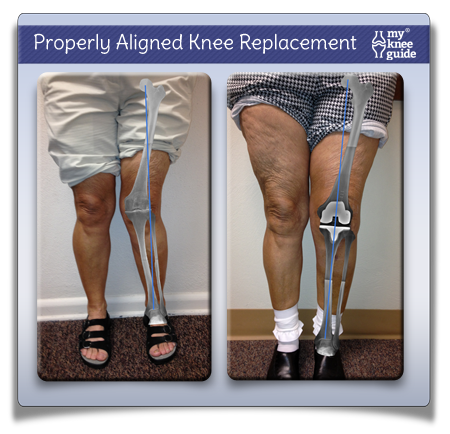ProPublica Misleads Patients about Surgical Complications Written by Dr. Brian Hatten M.D. on Thursday, 30 July 2015
ProPublica, a non-profit investigative journalist newsroom, released a searchable database on surgical complications on July 14, 2015. They included 16,827 surgeons in their analysis and call this database, the Surgeon Scorecard. ProPublica, in consultation with the Harvard School of Health and John's Hopkins University School of Medicine created this algorithm that rates surgeons based on an indicator of surgical complications.
The Centers for Medicare and Medicaid (CMS) provided the raw data to ProPublica to create this database. This concept is nothing new, as CMS has been making their databases searchable and downloadable for several years. My Knee Guide uses this type of public CMS data to provide its users with regional specific ratings, reviews, and safety information about hospitals, home health care organizations, and skilled nursing facilities. What is new, is the release of surgeon specific data.
ProPublica has focused their scorecards on surgeons who perform elective procedures such as knee replacement. Since CMS's actual surgeon specific complication data is rather limited, ProPublica has decided to create their ratings based only on hospital re-admission rates and in-hospital deaths. This is done by analyzing the ICD-9 (government created coding system) specific code associated with the re-admission to the hospital within 30 days of the surgery.
Herein lies the problem. ProPublica's article about How We Measured Surgical Complications explains to the public that they are monitoring "hundreds of complications related to [knee replacement] – problems like infections, blood clots, uncontrolled bleeding and misaligned orthopedic devices." Some parts of this statement may be accurate, but others are misleading about the actual data within the Scorecard.
CMS, and thus ProPublica, has no monitoring or reporting in place to detect "misaligned orthopedic devices" despite these claims. If the public uses the Surgical Scorecard, they may feel like they are protecting themselves from a bad knee replacement surgeon who puts knees in crooked, or who does not take the time or have the skill to create the best possible alignment. It is well established that proper alignment of a knee replacement is critical to its long term survivorship. Therefore patients and surgeons are particularly interested in this outcome.

Here's an example of why the proper placement and alignment of knee replacement components is so critical. Notice the images of Mary's knee before and after knee replacement. Her arthritis has led to a significant knock knee deformity (left). The properly aligned knee replacement (right) has straightened her knee as seen by the line drawn from her hip to her ankle. This line now falls in the middle of her replaced knee as opposed to the outside of her arthritic knee. Without proper component positioning, her knee alignment would not have been corrected.
There have been millions of dollars invested in developing techniques and surgical instrumentation (robot and computer assisted) in an attempt to improve accurate positioning of components during knee replacement surgery. There are hundreds of journal articles that argue in favor or against these technological advancements. Also, creating a correctly aligned knee replacement has become the focus of marketing campaigns of joint replacement manufactures and surgeons alike.
When ProPublica designed their Surgeon Scorecard, they had no data to determine whether surgeons implanted the knee replacement in the appropriate alignment or if they were misaligned. The only perceivable complication code that they could have used to make this leap of judgement is titled "Mechanical complication of prosthetic joint implant" associated with a re-admission within the first 30 days after surgery. We have determined this by reviewing the white paper assessing surgeon-level risk of patient harm during elective surgery for public reporting produced by ProPublica. In reality, the only way to determine if a knee replacement is "misaligned" is to review the actual post-operative x-rays, which neither CMS nor ProPublica can access.
Making this claim is misleading to the public and we request ProPublica change the way they advertise their Surgeon Scorecard database to remove the statement indicating that they can determine a surgeon's complication rate of "misaligned orthopaedic devices."
ProPublica' s mission statement is to produce journalism that "shines a light on exploitation of the weak by the strong and on the failures of those with power to vindicate the trust placed in them." However, ProPublica has inadvertently become the "power" that is now misleading our own patients about the information within their Surgeon Scorecard.
Latest Blogs
- When Should I Have My Knee Replaced? – A Surgeon's Perspective
- Research Projects - Weight Loss, Mood and Pain as Related to Knee Replacement Surgery
- Return to Work after Knee Replacement – Patients Perspectives
- Return to Work after Knee Replacement – Timeline and Challenges
- ProPublica Misleads Patients about Surgical Complications
- Does Your Joint Replacement Have a Warranty?















